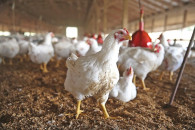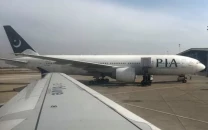Saving resources: Documenting the informal economy
To promote documentation, taxation, banking and corporate laws play vital role

The informal undocumented economy and tax exemptions mainly drain taxation resources of a country, which ultimately create distortion in its economic system.
Documentation of the economy is vital for proper micro and macroeconomic planning of a country and for accelerating its gross domestic product (GDP) growth.
In a developing country like Pakistan where, according to some estimates, half of the economy is informal/ underground, documentation assumes a very important role in setting economic direction of the country.
Documentation has become further important for our country in the wake of terror financing and various demands put forth by the Financial Action Task Force (FATF). To promote documentation of the economy, taxation, banking and corporate laws play an important role.
Various successive governments in Pakistan took numerous steps to document the undocumented and informal economy. Fiscal laws prevailing in the country – sales tax law (both for goods and services) and federal excise law – are also being amended in order to cater for the documentation requirements of the economy. Among the various steps taken so far in this regard, following are the most prominent:
First, through the Finance Act 2019, an amendment was introduced in the Sales Tax Act 1990 whereby every registered person, at the time of making taxable supply, will issue a serially numbered invoice bearing CNIC or NTN of the recipient of the supply.
However, an exception has been made whereby the supply not exceeding the value of Rs100,000 made to an ordinary consumer will not fall within the purview of this provision. At the time of its introduction, there was immense pressure on the Federal Board of Revenue (FBR) to withdraw this provision, which it successfully overcame.
Second, all points of sale (POSs) of big retailers (tier-I retailers) are now required to be integrated with the computerised system of the FBR under the Sales Tax Act 1990. In order to encourage big retailers to integrate their retail outlets with the POS system of the FBR, such retailers have been excluded from declaring a certain value addition to their supplies at the time of filing their returns, ie exclusion from the purview of Section 8B.
Furthermore, in order to encourage the general public to make purchases from such retailers that are integrated with the FBR’s POS system, an incentive of cash back of up to 5% of the tax involved at the time of such transactions has also been introduced.
Moreover, sales tax is charged at the reduced rate of 12% if goods of finished fabric and locally manufactured finished articles of textile and textile made-ups and leather and artificial leather are sold from the POS-integrated retail outlets.
Third, the Sales tax Act 1990 binds every buyer to make payment for a transaction through the banking channel if the value of such transaction exceeds Rs50,000, otherwise input tax credit cannot be claimed by such buyer. Such provision is there in the law for encouraging payments through banking channels.
Fourth, a registered person under the Sales tax Act 1990 is not entitled to deduct input tax on such supplies exceeding Rs10 million in a tax period or Rs100 million in a financial year as are made to an unregistered person. Such provision has been introduced to encourage registered persons to make supplies to registered persons only.
Fifth, for proper monitoring of production, stock position and supplies of various sectors through electronic and other means, rules regarding RIMS (real-time invoice management system) for hotels and restaurants, POS system for big retailers, track and trace system for tobacco and certain other manufacturing sectors and video analytics have already been framed and their implementation is at various stages.
It is hoped that once these are fully implemented, they will augment the documentation drive of the government.
Sixth, STRIVe software of the FBR does not allow any recipient of taxable supply to claim input tax adjustment until and unless the said supply is declared by the supplier in his tax return. This software has considerably solved the issue of flying invoices and resultantly, the issuance of bogus refunds has been reduced to a great extent.
Seventh, the Eleventh Schedule of the Sales tax Act 1990 basically deals with deduction/ withholding of sales tax by the recipient of supply. Previously, withholding of sales tax was being done on the basis of registered and unregistered persons.
Through the Finance Act 2020, the said basis has been replaced with that of active and non-active taxpayers in the said schedule. The recipient of any taxable supply will deduct the whole of sales tax and deposit it in the national exchequer if the supplier is not on the Active Taxpayers’ List of the FBR.
An active taxpayer is a registered person, who is a regular filer of sales tax and income tax returns and withholding tax statements due to be filed under the Income Tax Ordinance 2001.
It is worth mentioning that a non-active taxpayer is not entitled to file Goods Declaration for import and export, issue tax invoices and claim input tax or refund. Furthermore, he has to pay extra tax on the supply of electricity and natural gas.
Eighth, every conveyance carrying goods supplied from tax-exempt areas of Azad Jammu and Kashmir, Gilgit-Baltistan and tribal areas is bound to carry such documents, as may be prescribed by the FBR. Such documents may be examined by the staff of Inland Revenue Department at the check-posts established by the Regional Tax Offices concerned at the entry points of such goods.
Ninth, further tax at the rate of 3% is charged in addition to the standard rate of 17% under the Sales tax Act 1990 where taxable supplies are made to an unregistered person. This measure has been adopted in order to encourage the persons involved in the supply chain to get themselves registered.
Following these lines, steps for documentation of transactions have also been taken by the provincial revenue authorities, which deal with the subject of sales tax on services.
Such measures are sure to help not only in documentation of the economy but also in securing tax revenue for the government.
The writer is the Chief Inland Revenue in FBR headquarters
Published in The Express Tribune, December 14th, 2020.
Like Business on Facebook, follow @TribuneBiz on Twitter to stay informed and join in the conversation.


















COMMENTS
Comments are moderated and generally will be posted if they are on-topic and not abusive.
For more information, please see our Comments FAQ